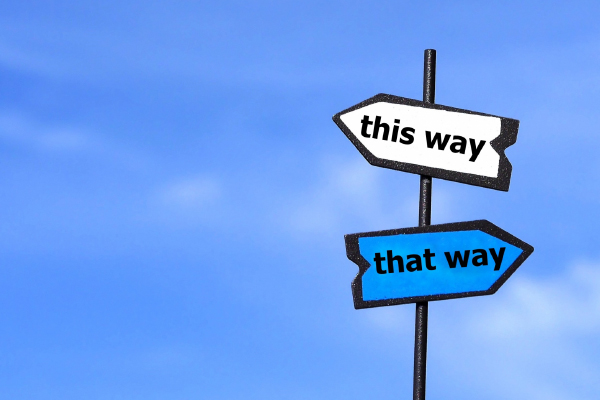Environmental Chemistry Lab, Department of Applied Chemistry,
Faculty of Science and Technology, Keio University
Led by Tomoaki OKUDA, Ph.D.
Admission
Putting our Philosophy into Action
We act accordingly in regard to the philosophy mentioned below.
Our Mission
Why are we gathered here?
The people that make up our laboratory come from many different backgrounds and differing perspectives. We believe diversity is essential for fostering creativity. Based on laboratory members’ positions, students are here one year, others three years or possibly more. Combining the strengths of our diverse laboratory members is how we can achieve the most success regarding our mission. We devote ourselves to achieving that shared goal; to improve the health of people all over the world by advancing the latest research regarding the effects of ambient air and other environmental media on human health.
Guiding Principle
How do we achieve our mission?
Our guiding principle is "Development of one’s integrity through laboratory activities". It is important to be successful in one’s research, but as the same time, you should develop integrity to make it possible to both solve environmental issues, but also make your life rewarding. We all aim to become a person who can make a difference in the world, and we do so by thoroughly committing to our research regarding the atmospheric environment. At the same time, we try our best every day to develop ourselves outside the academic sphere.
What We Aim For, Practically Speaking
How do we actually spend our time in our laboratory?
We set practical and specific objectives as individual goals. Peer-reviewed academic papers are what researchers should aim for in order to share our research achievements with the world. Research results presentations at academic conferences are also a good intermediary objective. Students should plan their thesis (Bachelor, Master, and/or Ph.D.) to align with these objectives. That being said, academic papers are not always essential when the goal is to solve environmental issues in the real world. To that end, it is very important to set objectives for social implementation of our research achievements and consider obtaining patents based on our research. How do we reach these goals, pragmatically speaking? Students give research progress presentations once every two-months in front of all members of our laboratory, in order to check their current status and discuss further research plans. Students also have a chance to give a presentation on a research paper authored by someone else but related to their own research. Students also submit weekly reports to their supervisor sharing their daily research activities and upcoming plans. But above all, the most important activity is the daily research itself. To sincerely commit your research is the first step in developing your academic integrity. Please note that many students in this lab are not fluent in English, therefore the weekly seminar is often in Japanese. Of course, international students can present their papers in English, and can communicate with the laboratory supervisor (Prof. Okuda) in either English or Japanese.
Daily Activity
What we can learn from classical literature
In daily research, things do not always go as planned. Even if you know your end goal, you may still be stumped about how to spend any given day. However, humans have confronted this type of situation for thousands of years. Looking at classical literature, we can get many suggestions about how to spend everyday life. Let me share an example: Orthodox Neo-Confucianism tells us that you can be a good person while you keep studying, no matter who you are. I strongly agree with this philosophy. It also tells us that you should monitor your own behavior even when alone. When you aim to be a person with integrity, it doesn't matter where you are, you should act accordingly and faithfully. According to these thoughts, one should have "questions" all the time. When you struggle with a difficult situation, you should have many questions. You should share your questions and discuss possible answers with everyone around you. That kind of behavior will push you closer to scientific achievements and to becoming more mature. What you don’t know is not something to be embarrassed about. It’s often said that simple questions point out the truth. We value any small question, no matter from students or staff.
Yearly Schedule
What does a year in the laboratory look like?
We update the yearly schedule at least once a semester. The current tentative schedule is below.
- April:
- Spring semester starts, safety instruction, experiment trainings, oral examinations, research plan presentations, training reports. Every laboratory member must attend laboratory from 10 am to 6 pm, Monday to Saturday in April (mandatory).
- May:
- Research literature presentations start
- June:
- Midterm research presentations
- July:
- Semester research presentations
- August:
- Students take 3 weeks off, overnight laboratory trip, graduate school entrance exam
- September:
- Fall Semester starts, domestic conferences, midterm presentations for 2nd year Masters students, Yagami Festival
- October:
- Fall Semester research literature presentations start
- December:
- Semester research presentations, KEIO TECHNO MALL, new laboratory members (3rd year Bachelor’s students) selected, winter break (2 weeks)
- January:
- Welcome reception for new laboratory members, preparation for thesis
- February:
- Thesis submission, thesis presentations, farewell party
- March:
- Students take 3 weeks off, planning for next semester, preparation for trainings
For Bachelor Course Students
Anyone who believes in our mission and philosophy is welcome in our laboratory. If you are an undergraduate student and looking for employment or thinking about graduate school, you should consider our laboratory. In general, many students have achieved remarkable growth in various ways after conducting research here. I recommend you study for at least one year in our laboratory. Even if you are a member of athletic clubs or want to do activities outside of the university, we can work around your schedule to be compatible with your laboratory activities. However, just because you have other activities doesn't mean you can reduce the time spent on your laboratory activities. Most students who join this lab start off as amateurs in regard to research. In the process of developing your research skills, the first three years or so you should take time to grow and learn as much as possible. There is no quick and efficient way to learn the science and research skills. That being said, we all would like to be a person who can make a difference in the world through dedicating ourselves to atmospheric environmental research, so, consider joining us!
Those who want to join us as an international graduate student
For those who want to join us as an international graduate student: Anyone who believes in our mission and philosophy is welcome in our laboratory. We believe that the diversity you bring with your different backgrounds to our laboratory will inspire all of us and lead to the development of new research insights. Our laboratory has conducted a lot of international joint research and accepted many international students. International joint research has been conducted with the United States (University of Wisconsin-Madison), China (Tsinghua University, Xi'an Jiaotong University), India (National Institute of Physics), Malaysia (Putra University), Indonesia (Gajah Mada University), New Caledonia (Scal ' Air), Croatia (University of Zagreb), Uzbekistan (UJICY: Uzbekistan-Japan Youth Innovation Center), Sweden (Lund University), and Canada (University of Northern British Columbia). International students have come from a variety of countries/regions, including China, Indonesia, Sweden, Spain, Uzbekistan, Korea, the United State, Hong Kong, France, Germany, and Canada. Please check the admission schedule of Keio university (https://www.st.keio.ac.jp/en/admissions/) and contact supervisor (Prof. Okuda) as early as possible if you are thinking of joining our laboratory. It is strongly recommended, but not required, that you visit our lab prior to submitting your application to Keio. Many scholarship programs are available to international students (https://www.st.keio.ac.jp/en/admissions/scholarships.html). Please note that many students are not fluent in English, therefore the weekly seminars will be given in Japanese. Of course, you can present your seminar in English, and you can communicate with the laboratory supervisor (Prof. Okuda) in either English or Japanese. Another thing to be aware of is that graduate students in Japan usually pay their tuition fee, and do not get paid for doing research. If you are expecting to be a paid research assistant like in the US, please be aware that is not the case here in Japan. Having said that, our university offers many scholarship programs for graduate students. Often they provide just enough compensation to cover the tuition fee. You will still need money to cover daily and monthly expenses in your life. With that in mind, we hope you consider joining us as we devote ourselves to achieving our mission; to improve the health of people all over the world by advancing the latest research regarding the effects of ambient air and other environmental media on human health. Please consider joining us!
Admission
General rules of the laboratory
Alumni Career Paths






